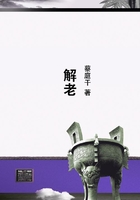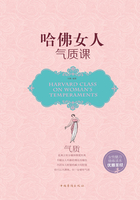Even as late as 1807,estates in Essex,if divided,were bought by farmers at high prices,and there was some prospect of landed property coming back to the conditions of a century before,'when our inferior gentry resided upon their estates in the country';and about the same date there were in Oxfordshire 'many proprietors of a middling size,and many small proprietors,particularly in the open fields.'They were especially strong in Cumberland,the West Riding,and parts of the East Riding.In the Vale of Pickering in 1788 nearly the whole district belonged to them,and no great landowner had been able to get a footing.But in 1788 this was already an exceptional case,and in other writers of that period we find a general lament at the disappearance of the yeoman.Arthur Young 'sincerely regrets the loss of that set of men who are called yeomen...who really kept up the independence of the nation,'and is 'loth to see their lands now in the hands of monopolising lords;'and in 1787 he admits that they had practically disappeared from most parts o*the country.And with the yeomen went the small squires,victims o*the same causes.
These causes,as I stated above,are to be sought less in economical than in social and political facts.The chief of them was our peculiar form of government.After the Revolution the landed gentry were practically supreme.Not only national but local administration was entirely in their hands,and,as a natural consequence,land,being the foundation of social and political influence,was eagerly sought after.We may contrast France and Prussia,where the landowners had no political power as such,and where,in consequence,small properties remained unassailed.The second fact is the enormous development of the mercantile and moneyed interest.The merchants could only obtain political power and social position by becoming landowners.It is true that Swift says that 'the power which used to follow land had gone over to money,'and that the great Turkey merchants,like Addison's Sir Andrew Freeport,occupied a good position;but few mere merchants were in Parliament,and Dr Johnson made the significant remark that 'an English merchant is a new species of gentleman.'To make himself a gentleman,therefore,the merchant who had accumulated his wealth in the cities,which,as we have seen,were growing rapidly during the first half of the eighteenth century with an expanding commerce,bought land as a matter of course.Hence the mercantile origin of much of our nobility.James Lowther,created Earl of Lonsdale in 1784,was great-grandson of a Turkey merchant;the ancestor of the Barings was a clothier in Devonshire;Anthony Petty,father of Sir W.
Petty,and the ancestor on the female side of the Petty-Fitzmaurices,was a clothier at Romsey,in Hampshire;Sir Josiah Child's son became Earl of Tilney.The landowners in the West of England,'who now,'in Defoe's words,'carry their heads so high,'made their fortunes in the clothing trade.And not only did a new race of landowners thus spring up,but the old families enriched themselves,and so were enabled to buy more land by intermarriage with the commercial magnates.The Fitzmaurices,for instance,inherited the wealth of the Pettys:Child's daughter married the Marquis of Worcester,and,by a second marriage,Lord Grenville of Potheridge;Lord Conway and Walpole married daughters of John Shorter,merchant of London.'I think Iremember,'said Sir R.Temple between 1675 and 1700,'the first noble families that married into the City for money.''Trade,'said Defoe,'is so far here from being inconsistent with a gentleman,that,in short,trade in England makes gentlemen;for,after a generation or two,the tradesmen's children,or at least their grandchildren,come to be as good gentlemen,statesmen,parliament-men,privy-councillors,judges,bishops,and noblemen,as those of the highest birth,and the most ancient families.'
Contrast this fusion of classes with the French society of the last century,with its impoverished nobility,living often on the seignorial rights and rent-charges of their alienated estates,but hardly ever intermarrying with the commercial classes;or that of Prussia,where the two classes remained entirely separate,and could not even purchase one another's land.
I have established two facts:the special reason for desiring land after the Revolution as a condition of political power and social prestige,and the means of buying land on the part of the wealthy merchants or of the nobility and greater gentry enriched by matrimonial alliances with the great commercial class.Now here is a piece of evidence to show that it was the accepted policy of the large landowners to buy out the yeoman.The land agent,whom I have so often quoted,lays down as a maxim for the model steward that he 'should not forget to make the best inquiry into the disposition of the freeholders,within or near any of his lord's manors,to sell their lands,that he may use his best endeavours to purchase them at as reasonable a price as may be for his lord's advantage and convenience.'
On the other hand,as a result of the supremacy of the great landowners in Parliament,their own estates were artificially protected.The system of strict settlements,introduced by Sir Orlando Bridgman in 1666,though not so important as it is often made out to be,prevented much land from coming into the market,though it did not prevent merchants from buying when they wished.
The custom of primogeniture checked the division of estates by leading to the disuse of inheritance by gavelkind,and similar customs.In Cumberland primogeniture was introduced among the freeholders in the sixteenth century.In Kent there was,in 1740,nearly as much gavelkind as before the disgavelling Acts began,but thirty years later it was being superseded by primogeniture.















